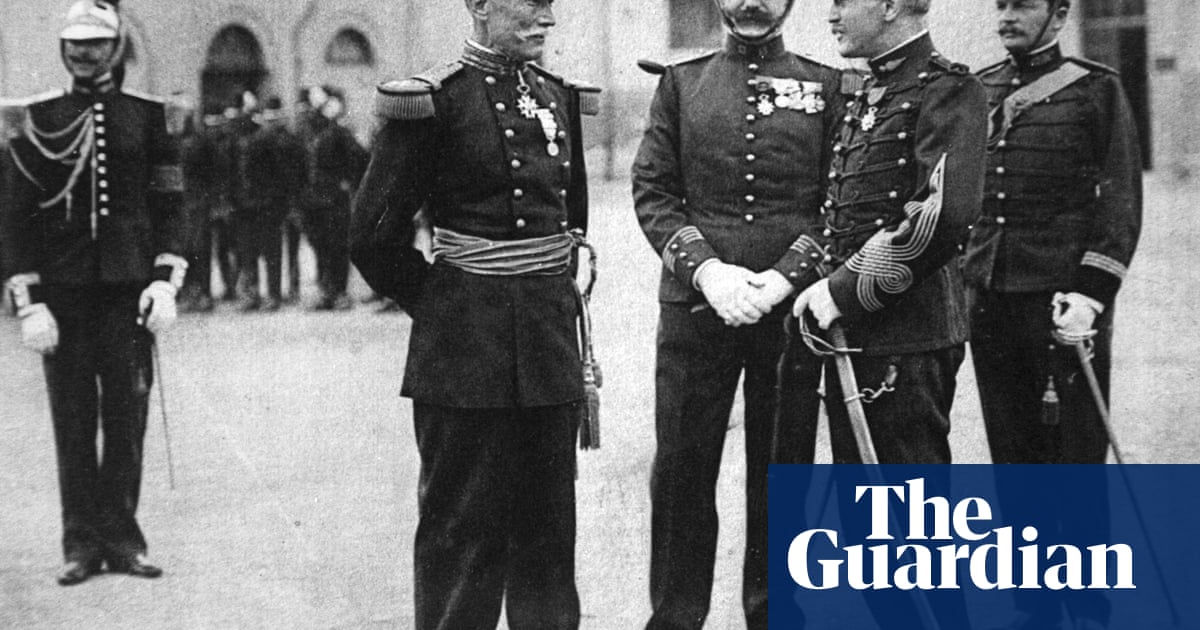More than a century ago he was wrongly convicted of treason in a case that convulsedFranceand laid bare a rising tide of antisemitism.
On Monday, French politicians took the first step towards remedying the injustice; unanimously backing a symbolic effort to promote Alfred Dreyfus, the Jewish French army captain, to brigadier general.
It was the beginning of bringing Dreyfus a step closer to the title he was denied, said Gabriel Attal, the former prime minister who put forward the bill.
“Accused, humiliated and condemned because he was Jewish, Alfred Dreyfus was dismissed from the army, imprisoned and exiled to Devil’s Island,” Attal wrote on social media last month, referring to theinfamous penal colonyin French Guiana. “Promoting Alfred Dreyfus to the rank of brigadier general would constitute an act of reparation, a recognition of his merits, and a tribute to his commitment to the republic.”
The roots of the case trace back to 1894, after a French counterintelligence officer found a torn-up document at the Germany embassy in Paris. As military officials scrambled to figure out who was passing military secrets to the Germans, they set their sights on Dreyfus, then a 36-year-old army captain from the Alsace region of eastern France.
But Dreyfus was not the author of the note, as Charles Sitzenstuhl, a member of President Emmanuel Macron’s centrist Renaissance party, told a parliamentary committeelast month.He said: “It was the antisemitism of a section of the military leadership at the time, perhaps combined with the jealousy over Dreyfus’s exceptional qualities, all playing out against a backdrop of pressure from the press and nationalist and antisemitic movements, that led to him being accused without any proof and to the absurd persistence of this accusation.”
Dreyfus was put on trial and convicted of treason. Publicly stripped of his rank, he was sentenced to life on Devil’s Island.
The case, however, was taken up by a new head of intelligence services, who noticed that the handwriting on the torn-up document matched that of another officer, Ferdinand Walsin Esterhazy. But when the evidence was presented to top brass the intelligence chief was driven out of the military and jailed for a year and Esterhazy was cleared.
As Dreyfus languished in prison, his case began to gain traction. Author Émile Zola became one of his most ardent defenders, catapulting the case into the spotlight with the open letter, titled J’accuse, which accused the government of antisemitism and unlawful imprisonment. The case split French society into twobitterly opposed camps;the anti-Dreyfusards who were convinced of his guilt, and the Dreyfusards, who saw him as innocent.
In June 1899, Dreyfus was brought back to France for a second trial. He was initially found guilty and sentenced to 10 years in prison, before being officially pardoned, though not cleared of the charges. It would take until 1906 for the high court of appeal to overturn the original verdict andexonerate Dreyfus.
Eventually he was reinstated with the rank of major, going on to serve during the first world war. He died in 1935 at the age of 76.
For years, lawmakers hadbatted aroundthe idea of posthumously promoting Dreyfus, culminating in the legislation presented on Monday. “The bill before you is the result of a unique legislative approach aimed at resolving a unique situation,” Sitzenstuhl told the National Assembly’s defence committee earlier this year. “It is a symbolic recognition of an extraordinary case, without parallel in the history of the republic.”
Sitzenstuhl also suggested that Dreyfus could be entombed in the Pantheon, the Paris mausoleum reserved for France’s greatest heroes. The bill now heads to the senate for debate.
The legislation makes it clear that the push to properly recognise Dreyfus was also a means of highlighting that France’s Jewish community – one of the largest in the world outside Israel and the US – continues towrestle with discrimination. “The antisemitism that struck Alfred Dreyfus is not a thing of the past,” thelegislation noted,describing it as a fight that is “still relevant today”.
France has seen a rise in hate crimes: last year police recorded an 11% increase in racist, xenophobic or antireligious crimes,accordingto official data published in March.
